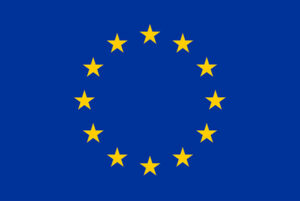Title: Social aWareness for sErvicE roboTs
Duration: 48 months
Starting Date: 01/02/2025
Web Site: www.sweet.unina.it

Title: Social aWareness for sErvicE roboTs
Duration: 48 months
Starting Date: 01/02/2025
Web Site: www.sweet.unina.it
To develop autonomous robots that are able to comply with social conventions and expectations, and avoid rejection from humans requires that robots must be aware of the social context in which they operate. To this extent, robots need to be endowed with high levels of reactivity, proactivity, responsiveness, and intelligibility. The Doctoral Network – Industrial Doctorates on Social aWareness for sErvicE roboTs (SWEET) aims at training a new generation of research and professional figures able to advance the development of socially aware robots capable of perceiving, interpreting, and responding to human emotions, intentions, and cultural differences.
The training program will offer a diverse curriculum, encompassing theoretical knowledge, hands-on technical skills, and real-world application scenarios. The network’s interdisciplinary approach includes various fields, such as artificial intelligence, machine learning, human-robot interaction, computer vision, and cognitive sciences. Doctoral candidates will be immersed in cutting-edge research and innovation, gaining insights from the experience of both industrial and academic acclaimed research groups. The network will place a strong emphasis on ethical considerations and responsible innovation, deploying socially aware robots aligned with societal values and promoting inclusivity.
Doctoral Candidates will also have the opportunity to participate in a unique coaching program for continuous professional development of their soft and leadership individual skills. Integration Milestones following a Scenario-Based Learning approach will provide co-working activities where collaborative design/implementation is fostered. The inter-sectoral collaboration between academia, user groups’ representatives, business developers, and robot manufacturers of the project will further strengthen the novelty and impact of the research and training, and that research results are economically, socially, and technically feasible.
– Università degli Studi di Napoli Federico II (Cooridnator)
– Universidad de Extremadura
– Agencia Estatal Consejo Superior de Investigaciones Científicas
– Universität Hamburg
– École nationale supérieure de techniques avancées Paris
– PAL Robotics SL
– NAVER France
– Furhat Robotics AB
– Universidad de León
– Sheffield Hallam University (funded by UKRI)
This project has received funding from the European Union’s Horizon Europe (HORIZON) research and innovation programme under the Marie Skłodowska-Curie grant agreement No 101168792
